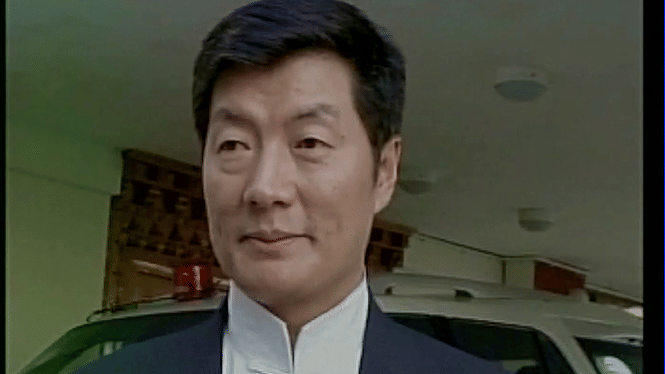New Delhi: Lobsang Sangay, President of the Tibetan government-in exile, has said that India should be careful and study the “Tibetan blueprint” before doing business with China.
“Be careful. Study Tibet. Look at the blueprint of Tibet. How it all started. Then you started Australia. You start with trade and then it become politics and then it becomes security then it becomes social and it becomes academic and it becomes everything,” Sangay told ThePrint when asked about the ongoing talks on the Regional Comprehensive Economic Partnership (RCEP) pact — an inter-sessional ministerial meeting among 16 countries to negotiate a mega free trade agreement.
Speaking at an event organised by the Indian Association of Foreign Affairs Correspondents (IAFAC) in Delhi, Sangay said India should be able to create a “balance” and understand if it is bringing China into the international fold or “becoming more like” the latter.
According to Sangay, China has now completely taken over Australia in business and has good cultural ties with it too.
He, however, also added that they should do more trade and business with China.
“We are never against doing business with China. We are never against having diplomatic relationship with it. You must have a relationship with China. It cannot be isolated,” added Sangay.
Also read: China is using hi-tech balloons to spy on India from Tibet
His remarks come at a time when Union Minister of Commerce and Industry Piyush Goyal avoided attending the last round of ministerial meeting of RCEP that took place in Beijing last week. Goyal, instead, had sent Commerce Secretary Anup Wadhawan for the meet.
While all member countries are keen to sign the proposed mega trade agreement by December this year, India has said it will not be able to continue the talks in its present form.
Indian industry and farming community has asked the government not to move ahead with the RCEP talks since it will open “floodgates for Chinese goods”.
The RCEP is a proposed mega free trade agreement (FTA) that is presently being negotiated between 10 ASEAN (Association of Southeast Asian Nations) members — Brunei Darussalam, Cambodia, Indonesia, Lao PDR, Malaysia, Myanmar, Philippines, Singapore, Thailand and Vietnam — and their six trading partners India, China, Australia, New Zealand, Japan and South Korea.
Also read: Why Modi doesn’t mention the Dalai Lama anymore, while he rages against ‘enemy Pakistan’
Selection of next Dalai Lama
On the issue of the recent controversy surrounding China’s claim that Beijing and not New Delhi will select a successor to Tibetan spiritual leader Dalai Lama, Sangay only said, “It is Dalai Lama’s business how and in what form his reincarnation will happen.
“If the Communist Party of China decides on the next Dalai Lama, who will follow their own Dalai Lama? It is China’s plan to have two Dalai Lamas, like what they did with Panchen Lama.”
He also said that Tibet has already won the struggle “spiritually”, which it has been waging against China.
On the issue of conferring the Bharat Ratna to the Dalai Lama, Sangay said while the spiritual leader received several accolades around the world, he has never been given any award by India.
“This has been our wish. We will be happy if he gets it. We will also not have complaints if he is not conferred the award.”
Kashmir an internal matter
“As a guest of India, I will not comment on the internal matters of India,” Sangay said on the issue of scrapping Article 370 and proposing to turn Jammu and Kashmir and Ladakh into Union Territories.
He added that Tibetans only want to achieve genuine autonomy within China peacefully through dialogues.
Also read: China is reinforcing underground military facilities near Tibet-Arunachal border







bahut hi biass news failate ho bhai. india ke ho ya pakistan ke.